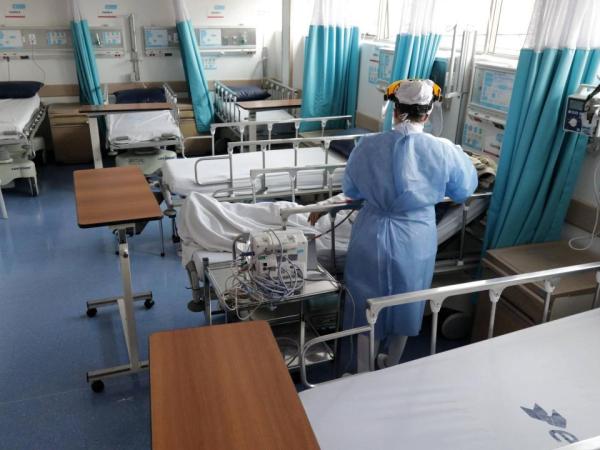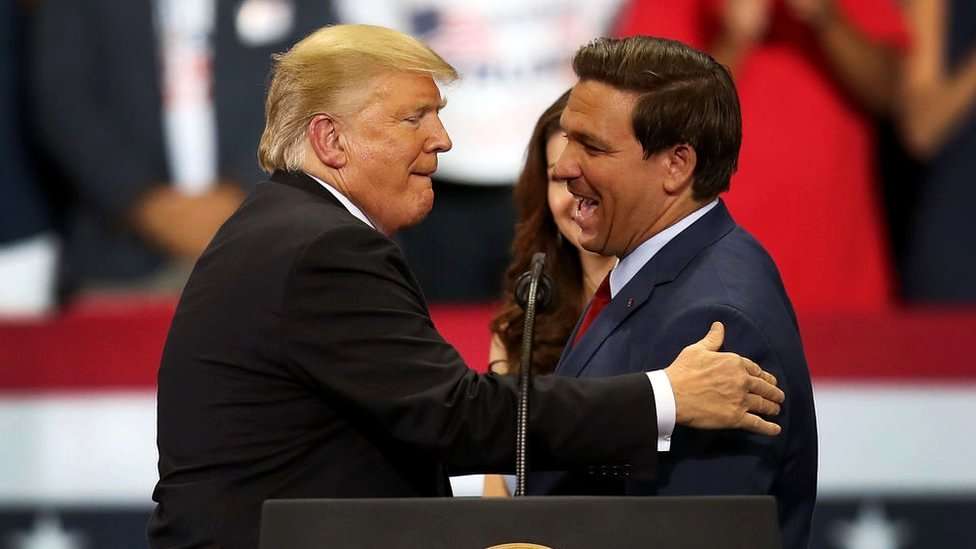The Government accepted some proposals that the Conservative parties and the ‘U’ had presented against the health reform. Among those, that the EPS retain certain functions, which was one of the points that most concerned health unions and political sectors.
(According to the Ministry of Health, functions must be subtracted from the EPS).
“We have white smoke. The health reform is gaining more and more force in a concerted manner”, wrote David Racero, president of the House of Representatives, referring to the agreement reached by President Gustavo Petro and the 2 parties that are part of the government coalition.
Since the participation of the Minister of Health and Social Protection, Carolina Corcho, in a forum organized by Andi, in which she recognized that the projects that were presented to Congress were not the same as those that came out, it was seen coming that the Government would cede in the points that were seen as “the most radical”like that of the EPS, which “For 30 years they have learned to manage health risk”as experts in the sector say.
As mentioned by Efraín Cepeda, leader of the Conservador party, “the regional funds of the ADRES are totally eliminated, the free choice remains, the current EPS continue as Health Managers (EGSV), but with direct transfer by the ADRES and without vertical integration”.
In this sense, the Adres will continue to be in charge of making the payments, but it will also audit the accounts.
(‘The health system must focus on prevention’).
Regarding free choice, Cepeda refers to the fact that citizens will be able to decide their EPS, which in the proposals are called Health and Life Management Entities (EGSV)as well as the care center where they want to be treated.
One of the most controversial points in the Government’s reform project is the one that removes functions from the EPS, because as the Minister stated, “They have many functions, which makes them have power and problems are generated.”
As agreed, these entities will continue to have care plans and affiliates. That is to say, “They will manage the health risk of their assigned population”according to Cristián Vanegas, manager of Healcont and health consultant.
To which is added that vertical integration will not be allowed, in which the EPS coordinate and control care services.
Additionally, primary care is maintained, one of the key chapters and one that is praised by different communities. The difference is that after the agreement, the first level hospitals will be primary care centers.
The support of these two parties is an air for the Executive, because it adds votes to the reform in Congress. But the minister, Carolina Corcho, He had mentioned that changes will be accepted, but based on “the essentials” of the project, which if they are not approved, will lead the Government to withdraw the reform.
(Petro and parties reach an agreement to unlock the health reform).
These essential points are: primary health care, creating a Single Public Health Information System and direct transfer to the EPS. For now, that stands.
It is expected that it will be defined if the Liberals are going to support what was agreed or if they file a separate project, as well as that the text of the paper that will be discussed in the ordinary sessions will be built.
What do the experts say?
Augusto Galán, Minister of Health in the government of Ernesto Samper, mentions that regardless of whether the EPS continue, it remains to be defined “how the comprehensive management of health risks will be within the transformations that are going to be carried out, that is, How is that function going to be in the organization of the system and who is going to fulfill it: is it going to be segmented or is it not going to be segmented?
On the other hand, Cristián Vanegas mentions that the fact that “The EPS continue with the role of insurers, it contributes to competition.”
Vanegas also says that “They must be very precise in how the integration process between the ADRs and the Managers will be, there must be a very high integration and synchronization”.
The economist expert in health, Paúl Rodríguez, considers that with this model, it is expected that “the system will be more efficient at the moment of taking the resources when the direct transfer is introduced.”
For Rodríguez, it is highlighted that these two parties propose “The logic of strengthening the ADRES to carry out audits”.
Guilds do not have a position
Acemi and Gestarsalud, unions that group some EPS, have not established a position regarding what was agreed between the Government and the two parties. Gestarsalud, meanwhile, will meet today with the leader of the ‘U’ party, Dilian Francisca Toro to draw conclusions.
Do the liberals get off the proposal bus?
The Liberal, Conservative and the ‘U’ parties jointly built some proposals for the health reform project. Last Monday the conservatives and the ‘U’ met with the Government and agreed on some points that are going to be included in the paper that will be debated in Congress.
It was striking that no member of the Liberal party participated in that meeting, despite being one of the proponents.
From this community they mentioned that they were invited, but César Gaviria, their natural leader, “He preferred not to go and that the other parties agreed.”
This Tuesday, the technical committee of the Liberals met to define whether or not they agree with the points that the Conservatives and the ‘U’ concluded with the Government and hope to meet today with the president.
From that meeting, the Liberals will define whether or not they support the project with the proposals agreed in Congress.
CLAUDIA M. QUINTERO RUEDA














